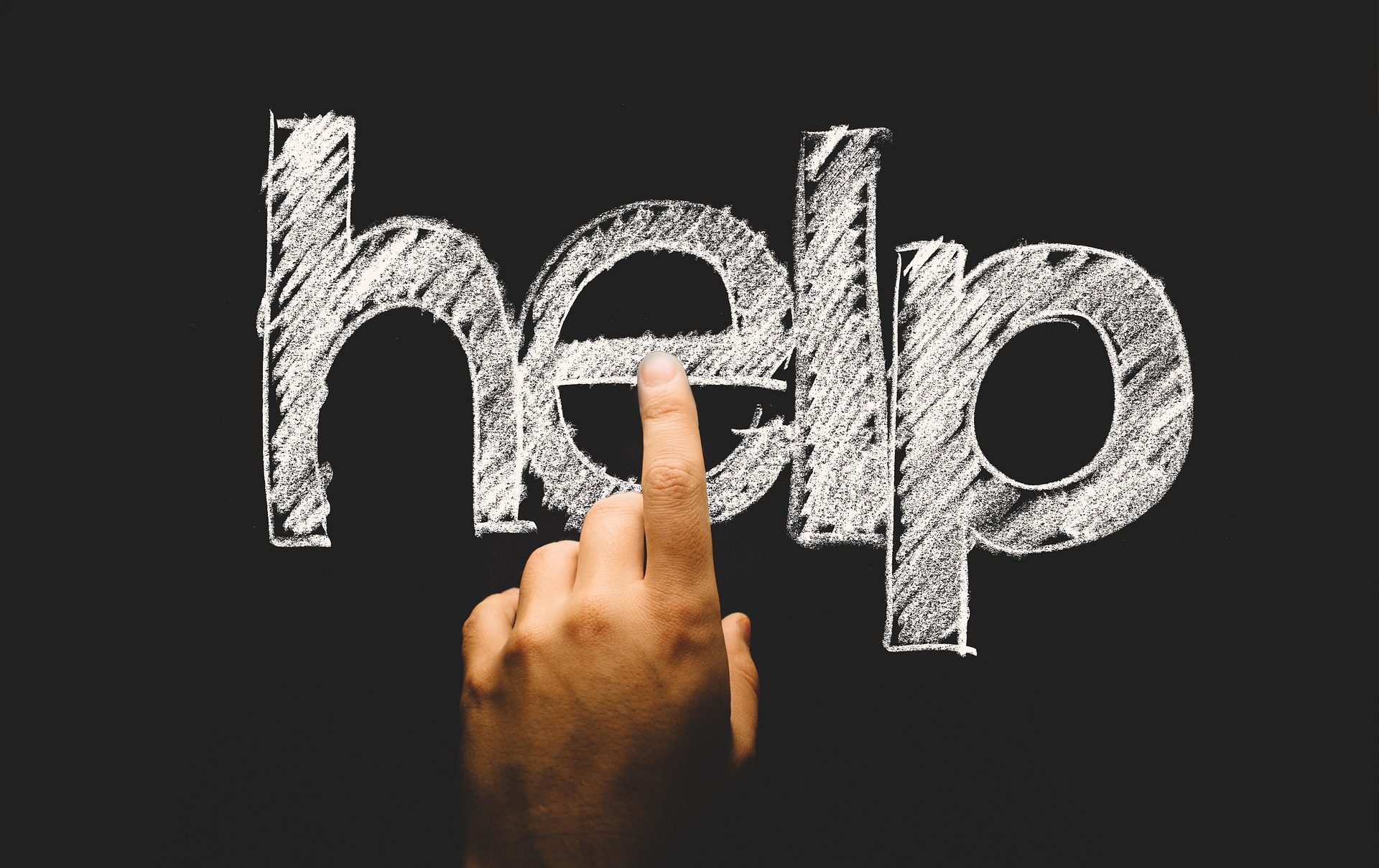So you’ve broken up? And you feel awful?
We are not going to lie. Breaking up is hard.
Breaking up is hard, even if you are the one who is initiating the split.
 Introduction
Introduction 
Heartbreak is always painful, excruciating even, and the emotions experienced as you consciously separate from someone with whom you have been romantically involved are powerful, devastating, and all-consuming. Not only that, but the pain does not generally go away overnight. In the weeks and sometimes months following a break-up, most people will go through a range of emotions that affect virtually every aspect of their lives; from eating and sleeping patterns to their ability to focus and concentrate, to their desire to be sociable with friends and family, however supportive these persons may be. Please be assured that this is all perfectly normal and will not last forever.
Did you know that psychologists have concluded that romantic love is a specific form of addiction and that it would appear that there are similarities between romantic rejection and cocaine craving? Why it hurts so much is because the rejection activates the part of the brain associated with motivation, reward and addiction cravings. So it is only to be expected that normal behaviour patterns go out the window during such upsetting times. You will not feel or act yourself. This is quite normal.
Practically everybody, at some point in their lives, has been or will go through the rollercoaster experience of break-up. It is an inescapable part of life. Navigating human relationships, particularly romantic relationships, can be hard, like walking through a minefield, particularly when you are young. One day it seems you are both hopelessly in love; the next you are splitting up. Human beings, generally speaking, crave the love and companionship of another, special person, which is why we seek out a partner and fall in love in the first place. But again, generally speaking, human beings have a tendency to be very fickle. When you open your heart to another person, trust them, fall in love, you automatically become very vulnerable if the object of your affections suddenly decides for whatever reason to discontinue the relationship. Such is the path to true love, for everybody: fraught with dangers. The main risk obviously being that we will hurt someone or get hurt ourselves in the process. And the likelihood is that during our lives we will probably all experience both sides of a break-up – and many more times than once…
But the good news is that we do survive. And you will survive too, even though at first you might think you may not. There is light at the end of the tunnel, even if at first the tunnel looks to be very long, bleak and pretty much devoid of any light at all.
 The five stages of a break-up
The five stages of a break-up 
Mental health specialists have identified that there are five stages both parties will go through during a break-up: denial, anger, bargaining, depression and acceptance. These are natural, normal emotions and they are all a natural part of the healing process. Researchers have also identified that an average amount of time for the process to last is approximately 3.5 months (but this is hugely personal and there is nothing wrong with you if you take more or less time than this).
Denial: You may of course have difficulty in understanding what happened, what you did wrong. This is so much harder if break-up has been communicated to you by message or, worse, by a third party. Try to at least ask for a verbal, face-to-face explanation (which will require bravery from both sides incidentally) so that you can gain the necessary closure on the reasons behind the split.
Anger: How could he/she do this to you??!! It is normal to be angry, to shout, scream, cry… Even to decide you hate them now for what they have done to you. Actually, love and hate are very close emotions, both being passions that run deep and are beyond our control. Thus switching from love to hate is quite automatic as your heart tries to digest and adjust to this new situation.
Bargaining: At the same time, you may want to do everything possible to negotiate a rekindling of the relationship. Beware however of making too many concessions simply to get him or her back: even if your pleas are heard, there is a risk that the relationship would become one-sided, with all the decision-making power being out of your hands. To really work, a relationship needs to be balanced, with give and take in equal parts on both sides. Uni-lateral relationships just don’t work. So don’t “sell yourself short” just to get them back! This solution will have little chance of working out in the long run. You may just have to accept that once a decision has been made by one party there is no going back…
Depression: Once you realize that bargaining is not going to work comes the depression phase – one of the hardest stages of grief in the healing procedure. Not to be confused with Clinical Depression with which professional long-term help is indispensable, feeling depressed is a normal reaction to the loss of a relationship. You feel sad, lost, bewildered, not yourself. You do not (in most cases at least) need to go into therapy.
Acceptance: gradually you will move from one stage of grief to the next, until you accept that the relationship is over. It will then be time for you then to move on and try to enjoy life again. In the meantime, make sure to go keep up with your friends, some of whom may have accompanied you through stages one to four above. They will help you now by taking you out, and by making you smile and laugh again
During this whole healing process it is quite ok and very normal to indulge your feelings of sadness, to cry, to wallow in self-pity, to listen to sad songs and to watch romantic films that make you remember the good times… But we are all natural survivors and there will soon come a time when our instinct tells us that life goes on and that there are many new people out there to meet, exciting things to do, wonderful adventures to be had. Time really is a great healer, however cliché that may sound.
 What NOT to do after a break-up
What NOT to do after a break-up 
To give your heart the best chance to heal in the fastest possible time, it is recommended that you:
-
Do not beg your ex for another chance
-
Get off social media – stop snooping around to see what he or she is doing, it is not going to help and will only make you feel worse
-
Do not think about revenge – focus on yourself, not them
-
Do not quickly start dating the first person who comes along – wait until you feel really ready and in a good place to start and commit to a new relationship
-
Do not give away any dirty secrets – stooping low will do nothing for your self-respect, not to mention your reputation
-
Don’t isolate yourself – while spending time alone is sometimes necessary, the support of your friends can work wonders too…
-
Don’t turn to alcohol or substances for support. If you see yourself (or witness a friend) doing this, seek help immediately from the school Health Advisors or a trusted member of staff
 How do you let go of someone you love?
How do you let go of someone you love? 
Recognize when it’s time – Learning when it is time to let go is often the most difficult part of the process. With time, your instinct, your survival mechanism, will kick in automatically.
Change your story – Plan a new chapter, one where you are in control and a whole host of new choices comes your way.
Stop the blame game – Whose fault was it anyway? At the end of the day, does it really matter? Don’t constantly blame your ex for hurting you, but don’t beat yourself up over the situation with so many “if onlys…” either. Accept that the relationship was not meant to be, and that maybe certain things could have been done differently by both of you. Blame is never one-sided but agonizing over who did what and why is not going to help you to move on.
Scream, shout and swear! – Sometimes it helps to let pent up emotions out in a torrent of abuse! It feels good if nothing else (but make sure whoever is on the receiving end understands this is not about them 😉)
Master your emotions – Once you can do this you can effectively take back control of your life and move on.
Practice empathy – Objectively speaking, breakups are useful because they allow us to grow, understand our reactions and emotions. When you can take a step back and be empathetic to others, and forgive the person who hurt you, the one who benefits in the long-run is you.
Adopt an attitude of gratitude – Life is a constant journey. People come, people go. With every experience, pleasant or otherwise, we can learn to be thankful that we are able to live our lives to the full and experience such strong emotions that make us human. Be grateful for the chance to move on and start a whole new meaningful story with someone who will love you, once you are ready for that step.
 How to survive a break-up and learn to live, love and trust again
How to survive a break-up and learn to live, love and trust again 
Step 1: Express your emotions
Expressing your emotions is the first step to recovery. You will go through the grieving process described above where you can fully expect that some days are better than others. Be prepared to go through a whole range of emotions during this time (in no particular sequence): shock, denial, grief, sadness, anger, relief, sadness, embarrassment, fear, betrayal, pain, rejection, acceptance….
Step 2: Short-term steps
Working through all these feelings is just the first step to learning to cope. It might seem very hard in the beginning, but you should try to take the following steps to ensure your emotional, mental and physical safety immediately following a break-up:
-
Finding “you” again: In a long-term relationship it can be easy to put your hobbies and occupations to one side. Now is the time to focus on the opportunity to embrace self-exploration or taking up previous activities again, or even finding new pastimes (however hard this may be).
-
Stay socially active. Try not to isolate yourself; pick up with friends again who you may have left aside to focus on your relationship; remember that friends and family are there to give support (even if that takes the form of just silence and a comforting presence) Experts believe that staying social is linked to decreased depression and a longer life.
-
Rearrange your free time and your social haunts – try as far as possible, and especially in the beginning, to avoid places and people who will remind you of your ex, as well as places where you are likely to bump into them.
Step 3: Focus on long-term recovery
Long-term recovery may depend largely on the following factors:
Mental health: Grief does not have a definitive timeline, and every break-up is different. Nobody can tell you how long it will take you to heal, nor how intense your feelings will be. So you must be patient with yourself and just let your own heart dictate the process. Some people may take longer than others, and some situations may just be more painful to handle than others depending on many varying factors (why you broke up, what were the reasons, how long you were together, whether or not third parties were involved etc.)
Allowing yourself sufficient time to process your new circumstances is essential to your mental health. And it will certainly help if you can remain socially and physically active during this time.
Try not to focus on blame, to become bitter, or to go over and over what might have been, however tempting that may be. It will not help you to move on. To do this, you have to first of all let go…
Self-care techniques: Self-care is vitally important after a break-up. The saying “You need to take care of yourself in order to take care of others” definitely applies to personal relationships. Self-care will help you to build a healthy relationship with yourself first and foremost, and this, in the longer term, will then transfer over to your new relationships, once you feel brave enough to venture back into the world of dating.
Re-establishing trust: It can be very hard to trust again. You may feel very let down and you will certainly feel very vulnerable, wanting to protect yourself from ever going through this once more. Re-building trust can take time. Again, processing your emotions as well as sharing your experiences with trusted friends will help you to get to a better place where you will one day again feel confident enough to open up your heart to somebody else.
How you handle new relationships: Remember that “rebounding” is not always wise; your fragile emotional situation could negatively impact your new relationship. It is often best to give yourself some time to fully grieve and process your emotions before moving on. Rebound relationships rarely seem to last…
 Conclusion
Conclusion 
Whether you are the initiator or on the receiving end of a break-up, whether the desire to split is one-sided or mutual, ending a relationship is never an easy process. Do remember however that this painful stage of your life WILL pass, and that most of your friends and family will have lived through a similar experience at least once in their lives and so will be well-equipped to provide the emotional support you need.
If you feel that your mental health is suffering abnormally, you should never be afraid to contact your Glion Health advisor or a therapist for guidance. A health professional will be able to see very quickly if your feelings are just a normal and healthy reaction to one of life’s most common yet toughest traumas, or if your depression is more deep-seated and needs specialist attention.
Remember you are never alone, sharing and talking are the first steps to healing. Time will do the rest. Nobody will tell you it will be easy. But it will be worthwhile. So be kind to yourself, respect the process and let your heart heal naturally, as it certainly most will.
 Contact us:
Contact us: 
The Welfare team:
The Learning Support team:










